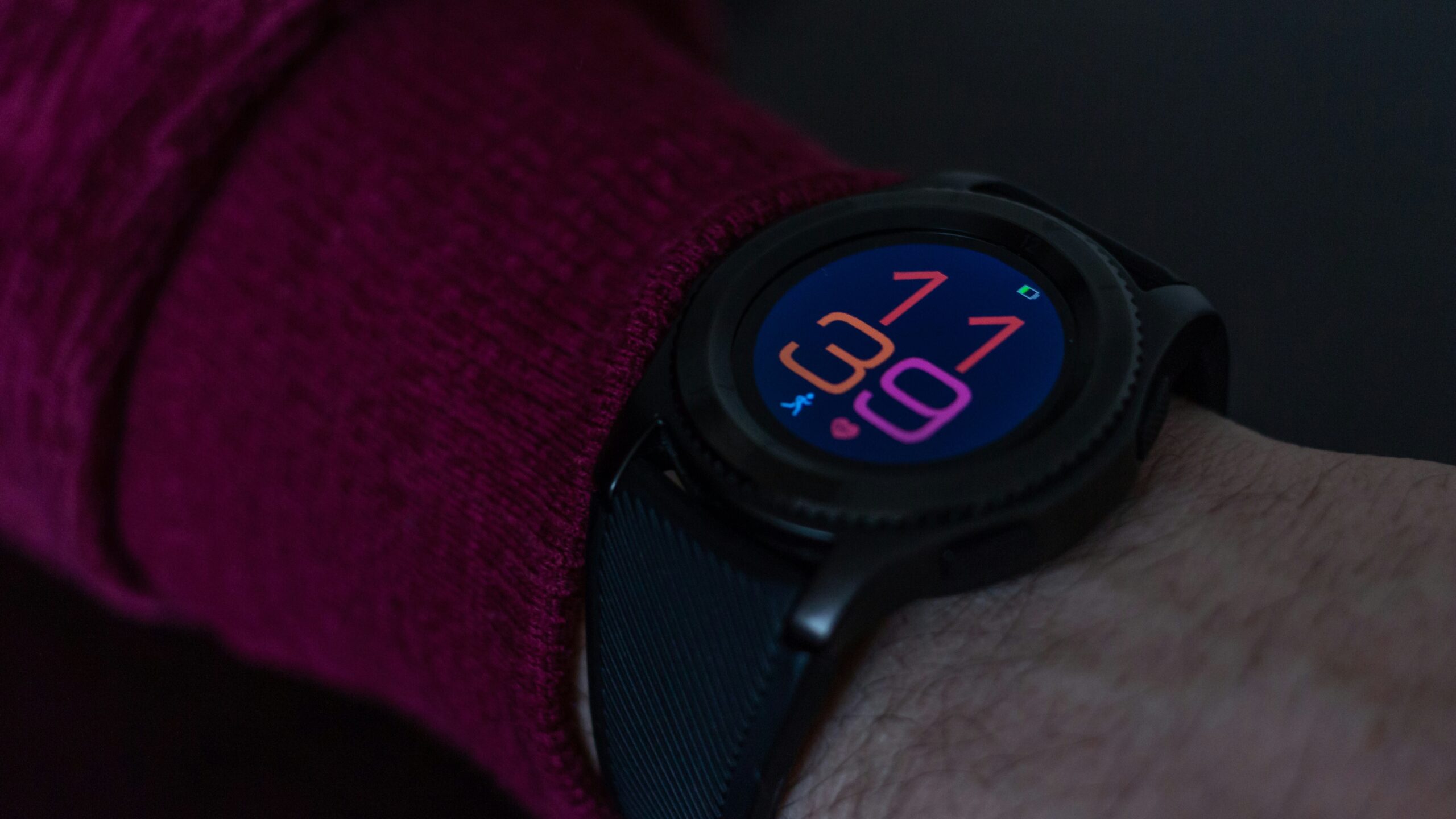
In today’s fast-paced world, mental health challenges like stress, anxiety, and depression have become more prevalent than ever. With rising mental health awareness, wearable technology has emerged as a powerful tool to support mental well-being. Devices that once focused solely on physical fitness now play a pivotal role in helping users manage stress and monitor their emotional health, and research supports this growing trend in wellness tech.
How Do Fitness Trackers Help with Mental Health and Stress Management?
Wearable fitness trackers, such as smartwatches and fitness bands, are no longer limited to counting steps or tracking calories burned. These devices now incorporate advanced features that assist in managing mental health and stress. Here’s how they work to support your mental well being:
1. Heart Rate Variability (HRV) Monitoring
Fitness trackers measure Heart Rate Variability (HRV), a key indicator of how well your body manages stress. Research published by the National Institutes of Health (NIH) demonstrates that low HRV is associated with chronic stress and mental fatigue. By tracking HRV over time, wearables provide users with valuable insights into their stress levels, enabling them to take proactive steps such as engaging in relaxation techniques when needed.
2. Guided Breathing Exercises
Devices like the Apple Watch and Fitbit Sense offer guided breathing exercises specifically designed to reduce stress. According to research from Harvard Health Publishing, deep breathing exercises activate the body’s relaxation response, helping to lower heart rate and reduce stress. By detecting elevated heart rates, these wearables prompt users to engage in breathing exercises, allowing them to manage stress in real-time. This feature not only helps individuals calm down during stressful moments but also promotes long-term mental well-being by encouraging mindfulness practices..
3. Sleep Tracking for Better Mental Health
Quality sleep is essential for mental well-being, as poor sleep is strongly linked to issues like stress, anxiety, and depression. Research from Harvard Medical School highlights that chronic sleep deprivation can impair cognitive function and increase emotional reactivity, making it harder to manage stress and anxiety . Wearable devices that track sleep patterns—such as the amount of time spent in light, deep, and REM sleep—help users identify sleep problems and improve their overall mental health. By providing personalized insights, wearables empower users to adopt healthier sleep habits, which are crucial for emotional resilience and mental clarity.
4. Stress and Mood Detection
Wearables like the Fitbit Sense and the Feel wristband are equipped with sensors to monitor skin conductance (electrodermal activity) and heart rate variability (HRV), two metrics strongly associated with stress and mood. Research from the University of Cambridge has shown that elevated skin conductance is often linked to emotional arousal, anxiety, and stress. These wearables detect stressors before they escalate, providing users with actionable steps to manage anxiety and improve their emotional well-being.
5. Physical Activity and Mental Health
Physical activity is widely recognized as an effective way to reduce stress and boost mood. According to the World Health Organization (WHO), regular physical activity can significantly reduce symptoms of depression and anxiety. Wearable fitness trackers help promote mental well-being by encouraging users to stay active throughout the day, prompting them with gentle reminders to take walks or engage in exercise, which releases endorphins—the brain’s natural mood enhancers.
By offering real-time insights, wearables empower users to take control of their mental health proactively, allowing for early interventions and lifestyle changes that prevent mental health challenges from escalating.
The Rise of Wearable Technology for Mental Health
Not long ago, wearable technology was seen as a futuristic concept, but today, these devices have become an integral part of daily life. From smartwatches to dedicated mental health wearables, these devices now offer more than just fitness tracking—they provide an understanding of your emotional and mental well-being.
Wearables have evolved from simple step counters to sophisticated tools that monitor stress, sleep, and even mood changes. This transformation underscores the growing demand for mental health support that is accessible, continuous, and data-driven.
Types of Wearable Devices for Mental Health
Here’s a breakdown of some of the most popular types of wearables that support mental health:
1. Smartwatches
Smartwatches like the Apple Watch Series, Fitbit Sense, and Garmin Venu, and Polar Vantage are packed with features designed to monitor both physical and mental health. These devices track heart rate, HRV, sleep quality, and even provide guided meditation sessions.
2. Fitness Trackers
Devices like the Fitbit Charge and Whoop are more specialized fitness trackers that focus on physical activity but also play a significant role in tracking stress and sleep, key factors in mental health management.
3. Dedicated Mental Health Wearables
More specialized wearables, such as the Spire Stone and Apollo Wearable are designed specifically for mental health. These devices use advanced sensors to detect stress levels and provide personalized feedback to help manage anxiety and mood swings. For example, the Empatica EmbracePlus uses skin conductance to detect emotional changes and offers real-time feedback to help regulate emotions.
4. Smart Rings and Clip-ons
If you’re looking for something more discreet, smart rings like the Oura Ring or clip-on devices like the Muse Headband offer lightweight options for tracking stress and sleep, while also offering biofeedback for meditation and relaxation practices.
The variety of wearables allows you to find a device that fits your lifestyle, ensuring that you can manage your mental health in a way that’s both comfortable and effective.
Benefits of Wearable Technology for Mental Health
There are many advantages to using wearable devices to support mental health:
- Accessibility: Wearables make mental health monitoring accessible, eliminating the need for frequent visits to specialists. By providing real-time data on stress, sleep, and heart rate, these devices act like a mental health coach on your wrist.
- Proactive Self-Care: By monitoring key mental health metrics, users can take proactive steps to manage stress, improve sleep, and maintain emotional balance before issues escalate.
- Personalized Insights: Many devices offer personalized feedback based on your unique data, helping you make lifestyle changes that directly impact your mental well-being.
- Continuous Monitoring: Wearables collect data throughout the day, providing a comprehensive view of your mental health. This helps users identify patterns and triggers that can be addressed through mindfulness, exercise, or lifestyle changes.
Challenges and Limitation of Wearables for Mental Health
While wearables offer many benefits, there are also some challenges to consider:
- Privacy Concerns: Wearables collect sensitive health data, which raises privacy issues. Users need to ensure their data is stored securely and understand how their information is used.
- Accuracy Issues: While wearable technology has improved, it’s not always 100% accurate. False readings could lead to unnecessary worry or missed opportunities to address real mental health concerns.
- Not a Replacement for Professional Help: While wearables can assist in managing mental health, they are not substitutes for therapy or professional mental health services. They should be used as complementary tools.
Future Innovations and Trends in Mental Health Wearables
The landscape of wearable technology for mental health is constantly evolving, with cutting-edge innovations on the horizon. Emerging technologies promise to make these devices even more intuitive and responsive to user needs.
Artificial intelligence (AI) is starting to make waves in the mental health wearables space. AI algorithms can process vast amounts of data quickly, providing personalized insights into mental health patterns that would be tough to spot manually. This technology enables devices to predict emotional shifts and suggest interventions before things take a downturn.
Machine learning offers another layer of sophistication, allowing wearables to learn from user behavior and preferences over time. The more data these devices collect, the better they become at delivering tailored advice and mental health strategies, adapting to each person’s unique journey.
Some of the most exciting trends involve merging wearable tech with other health platforms, creating a more comprehensive overview of well-being. There’s potential for these devices to become part of integrated health systems, where data from different sources converge for a holistic view of an individual’s mental and physical health.
Future developments may see wearables becoming even more discreet and user-friendly. Think of smart clothing or subtle patches that blend seamlessly into daily life while still delivering unparalleled mental health support.
Personalized mental health interventions could become the norm, with wearables guiding users through customized care plans based on real-time data. This could revolutionize how individuals manage their mental wellness, giving them more control and confidence in their mental health outlook.
User Experiences and Stories
Hearing from users who have turned to wearables for mental health offers valuable insights that statistics can’t always capture. These experiences shine a light on the real-world impact of wearable devices.
Many individuals share stories of newfound awareness. They’ve come to understand their mental health more deeply, pinpointing specific triggers and patterns that they might have missed otherwise. These users often feel more empowered and in control of their mental health journeys.
Some stories, however, highlight the challenges. Users sometimes face difficulties with data accuracy or find the wearables uncomfortable. It’s important for potential buyers to assess their own needs and be aware of possible drawbacks.
Success stories abound where wearables have helped to reduce stress levels and improve sleep quality, leading to better overall mental health. These narratives often praise the convenience of having mental health insights available at any time, just a glance away.
Community support has grown around these devices, with users forming networks or groups to discuss their experiences, share tips, and find encouragement. These communities can be invaluable for newcomers looking to make the most of their wearables.
These real-life testimonials paint a complete picture of the benefits and challenges of using wearables for mental health. They guide new users on what to expect and how to maximize the potential of these innovative tools.
Conclusion
Wearable technology has revolutionized how we manage mental health, offering real-time insights and personalized feedback that empower users to take control of their emotional well-being. From fitness trackers to dedicated mental health wearables, these devices provide a practical, accessible, and proactive way to monitor stress, improve sleep, and enhance mental resilience. As technology continues to evolve, the role of wearables in mental health will only grow, providing even more sophisticated tools for stress management and emotional support.

